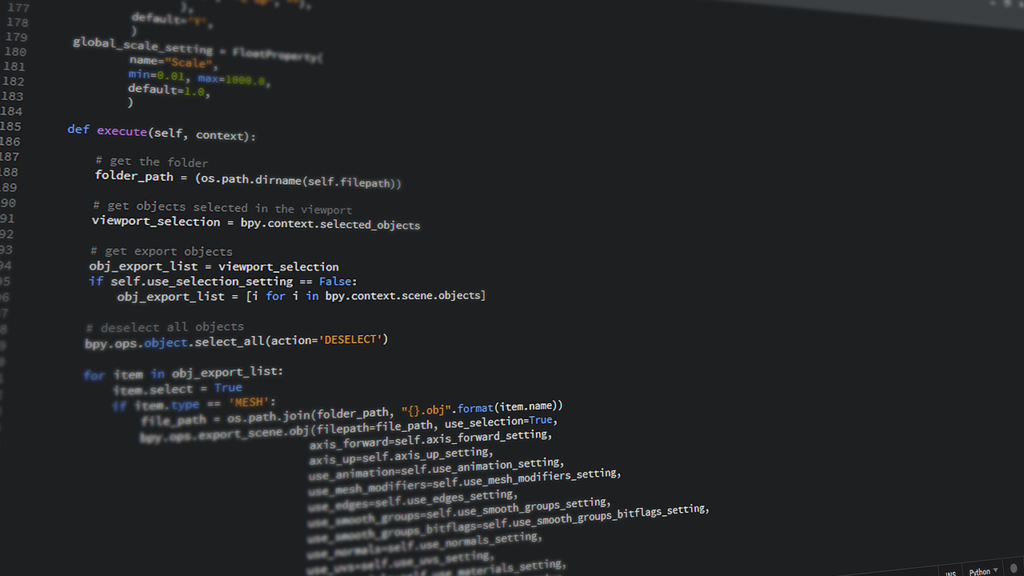Globalisation, automation and rapidly changing needs mean the future of employment will probably look very different to now. In fact, many current careers won’t exist in the next 10 to 20 years. So, it’s critical that students ask the important question: ‘Will my chosen study path lead to strong job opportunities after graduation and beyond?’
In this series, we’re exploring a range of occupations forecast to have strong employment prospects in the future. Some careers in the tech industry are quickly emerging. Plus, there are other existing careers that will also have an important place in the employment opportunities of tomorrow.
This time around, we’re finding out what it takes to be a data scientist. Thanks to the increasing importance of technology in the modern world, data is becoming a huge part of our lives. But how can we actually use it?
WHAT IS DATA SCIENCE?
Data science is a broad field, but it’s all about obtaining information from the data that is available to companies, governments and individuals. This data might include things like house prices, weather patterns, population characteristics, the stock market and more.
In 2019, digital data is absolutely everywhere; it’s just a matter of figuring out what it means. That’s where a data scientist comes in: whether you’re using house prices to predict market growth or slumps, monitoring weather patterns to forecast hurricanes, or working to improve the government’s ability to identify stolen identities, data science can provide you with the knowledge to make real changes in the world.
RAPID GROWTH
A recent McKinsey Global Institute report predicted a 50% gap between projected demand and supply of data scientists. If you choose to jump into ‘big data’ (that is, collections of big amounts of data), your expertise will only become more and more essential as technology provides us with incredible amounts of digitised, workable information.
INFINITE POSSIBILITIES
Every industry collects data, but many are only now understanding the potential of using data scientists to interpret that information. From medicine to media and finance to agriculture, data scientists can apply their skills to the particular real-world problems of each sector. Studying data science will allow you to use your talents in projects you’re passionate about around the globe.
USE VALUABLE CODING SKILLS
If you have an interest in coding or already possess coding skills, data science will allow you to put them to the test. No matter what area of data science you work in, you’ll need to use high-level programming languages such as Python, R and Matlab. Coding skills are incredibly valuable both within data science and across other technology industries.

SPOT IMPORTANT TRENDS
Studying data allows humans to see the complex patterns all around us. With the help of data scientists, we can figure out the costs and benefits of implementing programs to combat global issues like climate change or infectious diseases. Armed with knowledge about how and why certain programs work, data scientists can help communicate the effectiveness of these solutions to the public.
FUTURE-FOCUSSED
Data science also connects with the concept of machine learning, which is a branch of artificial intelligence (AI). Machine learning allows systems to learn from data and operate almost independently – think applications like driverless cars or movie recommendations on Netflix. If that sounds like a pretty awesome place to take your data science skills, you could end up playing a big role in the current machine learning revolution and help advance this technology even more as time goes on. It’s an exciting time to be part of the industry.
EDUCATION PATHWAYS
To kickstart your career in data science, you’ll need the skills and expertise to manage, understand and analyse huge amounts of information. Most data scientists begin their career with a university-level qualification and often continue to learn and specialise in their field. Relevant options include:
STUDENT STORIES
The University of South Australia offers a cutting-edge data science program with strong job outcomes. William Thong graduated from the University with a Master of Data Science and a passion for unlocking data’s secrets.
“I am intrigued by how hidden insights and intelligence can be uncovered using data science, and the value it brings to organisations and individuals,” he says. “Technology moves so quickly, and there are always new developments in data science, but the degree provides the fundamentals and is a good stepping stone for future learning.”
Another University of South Australia student, Luke Oswald, was considering his professional future. He decided that data science offered the flexibility he was looking for.
“I was looking for a change in career, and I already had an interest in what the field had to offer and what it promises, so I decided to make the jump!” he says. “The software and the programming languages that we have been working with are the ones that are used in the industry, and will put me in a good position when applying for work.”
Richard Shanahan has already graduated with a Master of Data Science and is using his skills in the industry.
“For me, it was an opportunity to retrain; to learn a new discipline that encompasses amazing statistical techniques, uses some incredibly advanced technology and is obviously a discipline on the rise – it’s rapidly evolving,” he says. “I asked myself, ‘Where can I go to get a general skill that I can apply across industries?’ The answer was data science.”
WANT TO STUDY FOR A FUTURE CAREER AS A DATA SCIENTIST?
The University of South Australia is the perfect place to embark on your data science journey. The University was rated five stars for excellence in research, employability, teaching, facilities, internationalisation, social responsibility and innovation in the 2018 QS Stars Ratings. It is also ranked in the top ten nationally for employer satisfaction and has a 92% overall satisfaction rate for international students, according to the 2018 International Student Barometer.
By the end of your degree, you’ll have gained both academic knowledge and work experience in modern data science techniques and practices. As a University of South Australia student, you’ll also benefit from the University’s lead role in the $88 million Data to Decisions Cooperative Research Centre that focuses on boosting national security through data analysis. For more information, visit the University of South Australia website.






